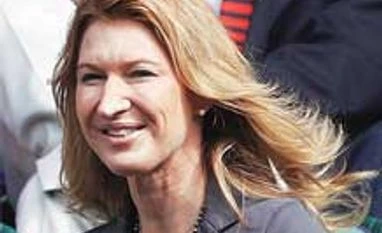Foreign flavour: Use with caution
As advertisers consider the charisma of international endorsers, they need to be aware of the nuances
Sayantani Kar Mumbai Bringing a celebrity from the world's stage could open up a new world for brands in India. Right from the days of Boris Becker's appearance for a suiting brand to the recent announcement of Steffi Graf as an endorser of Kerala's ayurveda, advertisers have gone for the boost an international face gives their brands. But there are times when they get caught in the strings attached.
With cash-rich advertisers, domestic companies going overseas and the youth consuming foreign media content real time, international celebrities are the fancy of many. But celebrity talent managers warn that brands need to come up to speed with the nuances that separate them from Indian stars or else trouble is on the cards. For instance, word on the street is that the deal between former tennis champion Steffi Graf and the Kerala Tourism board might have hit rough weather. A source says that Graf was miffed with the Kerala administration jumping the gun by sharing the tentative agreement when a final contract was yet to be signed.
Even though senior officials at the tourism board deny such trouble, they are now treading with caution. P.I. Sheik Pareeth, the director of KeralaTourism, says, "We have had only one round of discussions so far. We don't want to discuss it before reaching a final conclusion."
A greater dose of professionalism is not the only nuance that talent managers believe such contracts require. International celebrities also operate differently. Indranil Das Blah, chief operating officer at Kwan Entertainment and Marketing Solutions, says, "For Indian brand ambassadors, the industry goes by acknowledged rate cards. For international celebrities, there is no such standard fee. Hollywood actors usually ask brands what is their budget, which Indian brands are still not used to."
Manish Porwal, managing director at Alchemist Marketing and Talent Solutions, says, "International stars often want to go through the scripts when finalising contracts that Indian brands are not used to sharing." There is also the challenge of executing a contract once drawn up. Das Blah says that the logistics adds to the cost. But why opt for an international star in the first place? For Kerala Tourism, experts say it is about highlighting ayurveda's rejuvenating role, and hence, Graf, a successful athlete ageing gracefully. If the deal goes through, there are plans to start the campaign in September.
A well-known foreign face immediately ushers in the wow factor. Ask Micromax. The handset maker roped in Australian Hollywood actor, Hugh Jackman, in late-2013 for just a year for an estimated $1.5 million, with a single-minded goal, observes Porwal. "Nothing could have said 'I am a multinational too' more than signing up a Hollywood A-lister."
In the early-2000s, tennis star Boris Becker featured in a Siyaram commercial, in a bid to outshine Raymond, then considered to be the more upmarket brand, while Vimal in the seventies and eighties featured Vivian Richards. Das Blah says youngsters consuming western media content, has meant that his firm gets at least one enquiry a month for international endorsers.
But not every brand can shell out a fortune. While even the most expensive desi celebrity might command Rs 5-6 crore a day for two days of shoot and appearances a year, a Hollywood sensation is likely to charge the same ($1-1.5 million) as just the fee, not inclusive of the logistics and attendant expenses. But then there are needs that require the splurge. "Even if Micromax had employed an Indian with say, 20 times the fan following of Jackman, it would still not have got the same impact."
But slowly, brands will also discover stars with niche appeal, with perhaps a lower asking price. Pernod Ricard's blended scotch whisky brand, Ballantine's, for example, cast Gabriel Macht, one of the lead actors in the comedy-legal drama, Suits, in its recent ad. "It was to infuse an aspirational quality in the brand. The creatives were in sync with his avatar in the show as it recreated a boardroom," says Das Blah.
Indian companies going global has also led to a look-out for global endorsers. Hero Motocorp, which is betting big on Latin America, Southeast Asia after its African foray, has tied up with world champion golfer Tiger Woods. While Woods is out of form, Hero says he has a strong fan following in its maiden markets. "We plan to be in 50 countries by 2020 and a partnership with Tiger Woods reflects our global journey," says Deepak Mokashi, head of global business. Industry experts say that Woods would be used more for sports sponsorship and events. It partners the Tiger Woods Foundation as the title sponsor of the Hero World Challenge, which also saw Woods play after a hiatus of a few months. While Pawan Munjal, the CMD and CEO of Hero, is an avid golfer himself, Woods' contract (worth an estimated Rs 120-150 crore for four years) was also a result of the company's decision to move away from cricket.
Certain segments among international stars are finding India more relevant, says Das Blah. "Footballers and their clubs, for example, which have exhausted markets like China and are looking for newer audience". But it will still take a year or two for brands and celebrities to iron out the challenges.
)
)